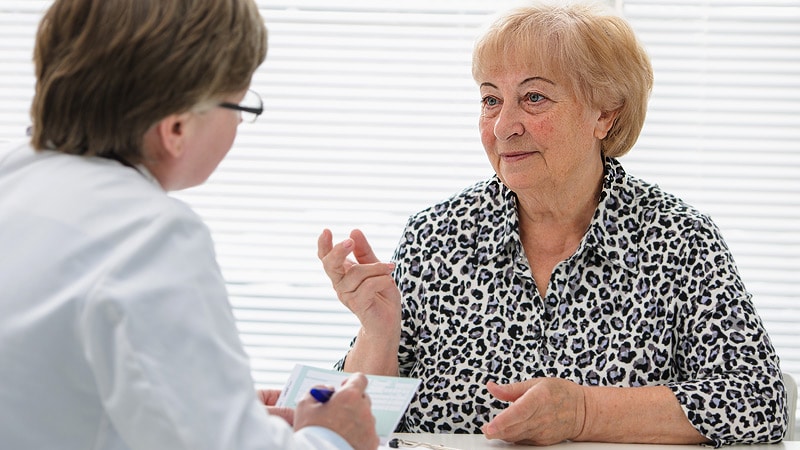Editor’s note: Find the latest COVID-19 news and guidance in Medscape’s Coronavirus Resource Center.
Roger Strukhoff was being treated for intestinal bleeding at a hospital outside Chicago this month when he suffered a mild heart attack.
Normally, the 67-year-old would have been sent to the intensive care unit. But Strukhoff said it was overrun with COVID-19 patients, and the staff instead had to wheel a heart monitor into his room and quickly administer nitroglycerin and morphine.
“A doctor I know pretty well said, ‘Roger, we’re going to have to improvise right here,'” said Strukhoff, who lives in DeKalb, Illinois.
The omicron surge this winter has not only swamped U.S. hospitals with record numbers of patients with COVID-19, it has also caused frightening moments and major headaches for people trying to get treatment for other ailments.
Less-urgent procedures have been put on hold around the country, such as cochlear implant surgeries and steroid injections for rheumatoid arthritis. And people with all sorts of medical complaints have had to wait in emergency rooms for hours longer than usual.
Mat Gleason said he wheeled his 92-year-old father, Eugene Gleason, into a Los Angeles-area emergency room last week for a transfusion to treat a blood disorder. It should have taken about seven to 10 hours, Gleason said, but his dad was there for 48 hours.
He said his father called him after 10 hours, asking for a blanket.
“He told me later, ‘I just assumed they forgot about me,” said Gleason, 57, who works as an art critic. “And yet he wasn’t the only person in that room. There were dozens of people” But Gleason added: “I’m not begrudging the hospital at all. They did a great job.”
An average of almost 144,000 people were in the hospital in the U.S. with COVID-19 as of Tuesday, the highest level on record, according to the Centers for Disease Control and Prevention. Hospitals in a few states such as New York and Connecticut that experienced early omicron surges are starting to see an easing of the patient load, but many other places are overwhelmed.
Hospitals say the COVID-19 patients aren’t as sick as those during the last surge. And many of them are being admitted for reasons other than COVID-19 and only incidentally testing positive for the virus.
Rick Pollack, CEO and president of the American Hospital Association, said the surge has had a widespread effect on the availability of care for people who have non-COVID-19 health problems. He said a number of factors are at play: More people are in the hospital, and a high number of health care workers are out with COVID-19, worsening staffing shortages that existed well before the pandemic.
As of Wednesday, roughly 23% of hospitals nationwide were reporting critical staff shortages, Pollack said.
Many people are also unable or unwilling to seek care for symptoms that do not seem like emergencies, he said. Pollack said that has led to delays in diagnosing conditions such as diabetes or high blood pressure that get worse the longer they go untreated.
Dr. Claudia Fegan, chief medical officer for Cook County Health in Chicago, said some people, particularly older patients, have been avoiding checkups and other routine care during the pandemic out of fear of COVID-19.
And as a result, “the patients we’re seeing now are much sicker,” she said, citing cases of advanced heart failure and cancer that might have been diagnosed earlier.
Mike Bawden, a 59-year-old marketing consultant with a history of blood clots in his lungs, said he couldn’t get an appointment to see his doctor in Davenport, Iowa, because his coughing symptoms were too similar to COVID-19. The doctor’s office was concerned about the virus spreading to others.
After nearly two weeks, Bawden went to a walk-in clinic, which sent him to the emergency room at Genesis Medical Center-East in Davenport. He said he waited almost six hours in an overflowing ER before he was seen. A scan showed clots in his lungs, as he suspected, and he was prescribed blood thinners.
If not for the surge, Bawden said, he would have gotten a scan much earlier at a doctor’s office.
“It’s always so easy to Monday morning quarterback the ER, but everyone was really nice — even the other patients,” Bawden said. “I think it’s important for folks to realize that nobody’s the villain.”
Craig Cooper, a Genesis spokesman, declined to comment on any individual cases. But he said in an email: “We are not exempt from the challenges medical centers across the United States are experiencing because of significant impact from COVID. We urge individuals to get vaccinated.”
Strukhoff, who is a researcher for tech startups, said he arrived at Northwestern Medicine Kishwaukee Hospital in DeKalb for what he suspected was internal bleeding.
He was diagnosed and given a bed in the emergency room. He waited there for six hours, feeling dizzy, before he was wheeled to his own room through hallways where people lay on stretchers.
“I was in no distress at that point,” Strukhoff said. “I was worried about clogging up the works in the emergency room and taking up a spot for other people.”
Christopher King, a spokesman for Northwestern Medicine, declined to comment on Strukhoff’s care because of privacy laws. But he confirmed that wait times were higher than normal throughout the hospital system, as they are across the country.
Strukhoff said that once he got his own hospital room, a colonoscopy revealed the bleeding. Doctors treated it by cauterizing a vein. He then suffered the heart attack while he was recovering. He said it took five hours for him to get into the ICU.
“It’s not something they were set up to do, but they did it,” Strukhoff said of the doctors and nurses who rose to the challenge. “These people are heroes.”
Note: This article have been indexed to our site. We do not claim legitimacy, ownership or copyright of any of the content above. To see the article at original source Click Here













